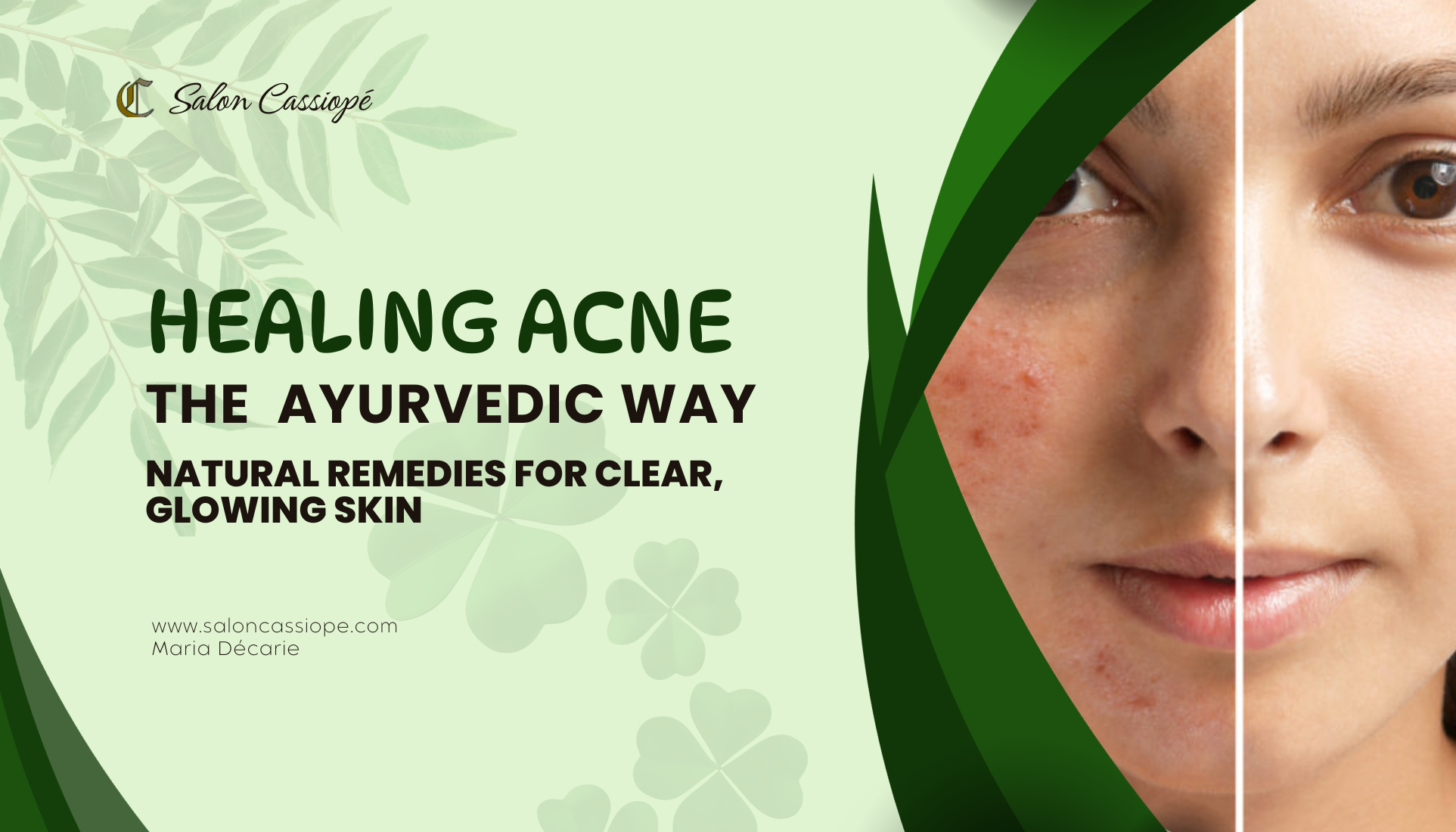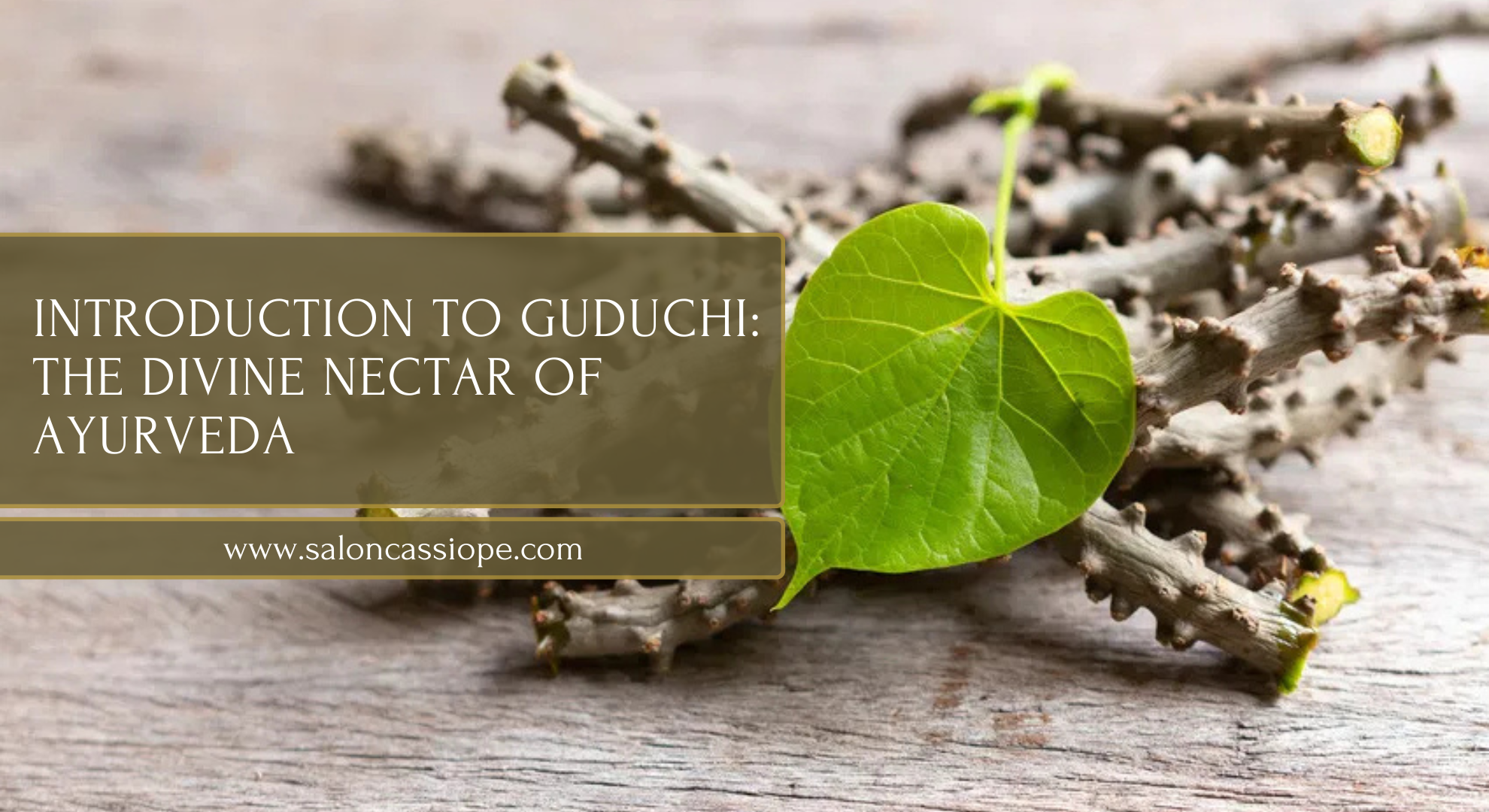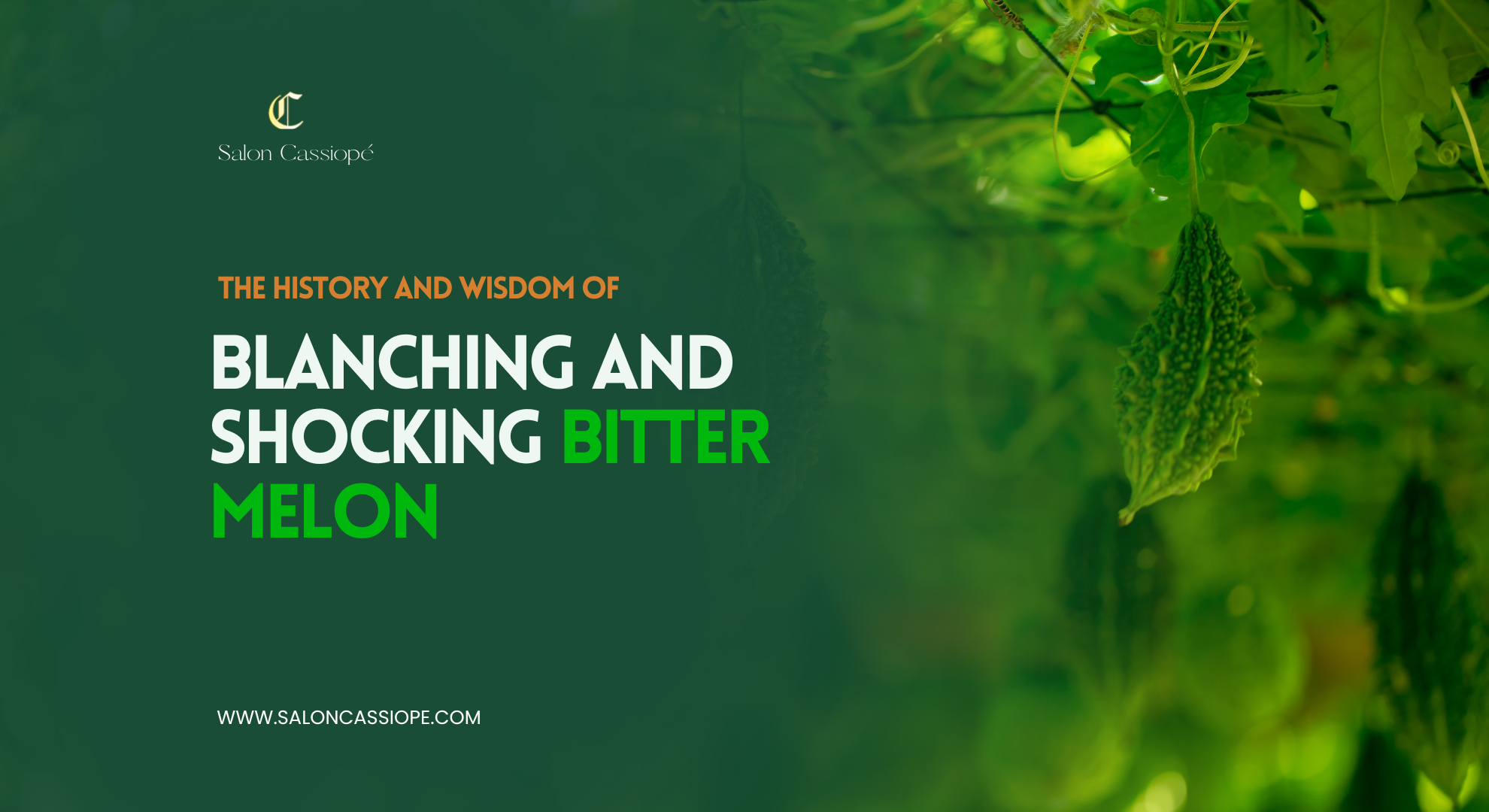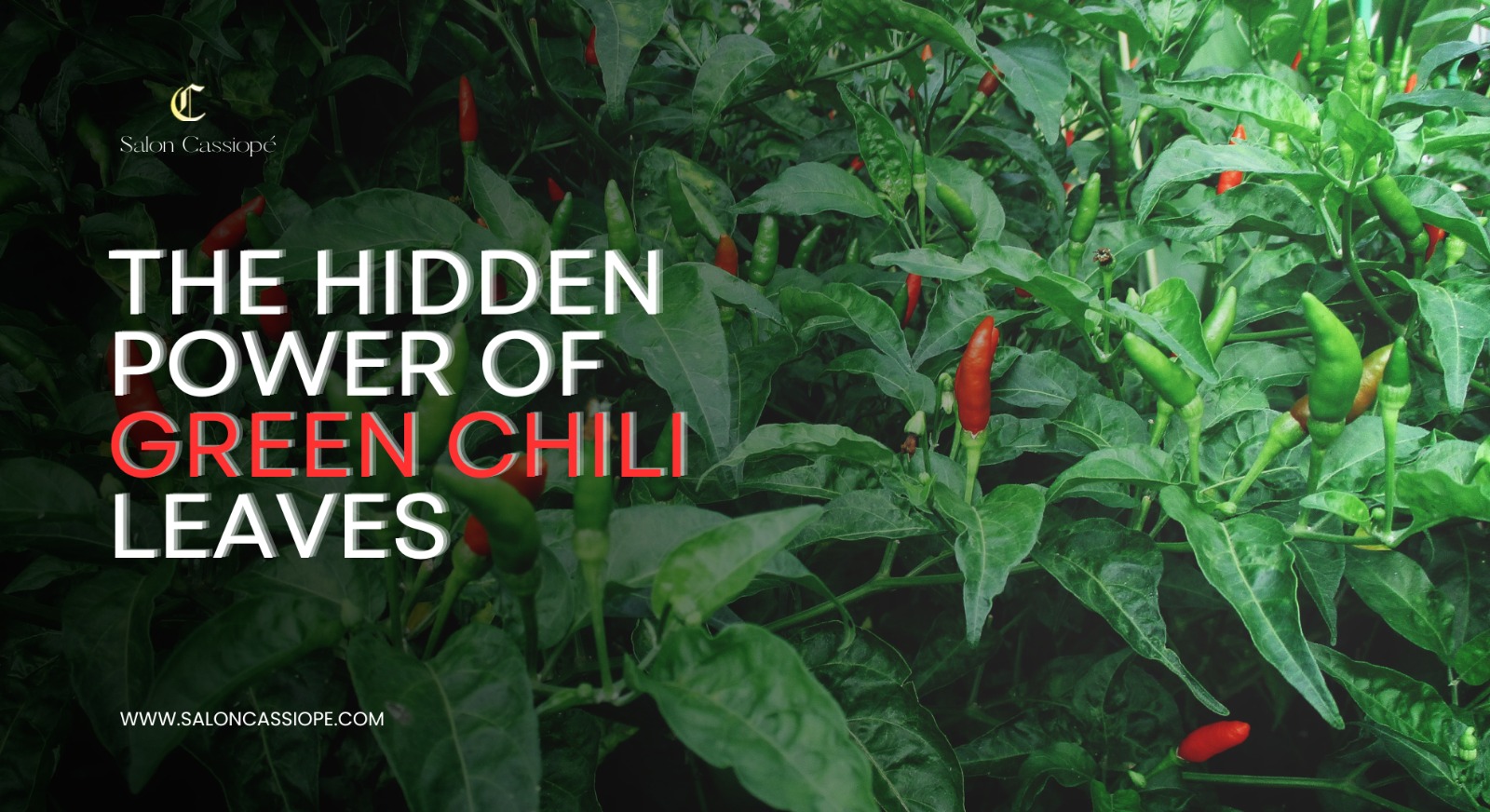Introduction
Acne is a common skin condition that affects millions of people worldwide, often causing physical discomfort and emotional distress. While modern medicine offers a variety of treatments, many individuals are turning to Ayurveda, an ancient system of medicine that seeks to address the root causes of health issues, including acne. In this blog, we’ll explore the Ayurvedic approach to acne and the natural remedies it offers to promote clear, glowing skin.
Understanding Acne in Ayurveda
In Ayurveda, acne is known as “Yauvan Pidika” or “Mukhadooshika.” According to Ayurvedic principles, acne is primarily caused by an imbalance in the doshas, which are the fundamental energies that govern the body. When the doshas—Vata, Pitta, and Kapha—are imbalanced, it can lead to skin issues, including acne. According to Ayurveda, Mukhadushika or better known as hormonal acne is cause by hyperkeratinization, inflamed acne lesions, blood tissues, and over-secretion of sebum.
Here’s a brief overview of how each dosha contributes to acne:
Vata: An imbalance in Vata dosha can lead to dry, flaky skin, which can make acne worse as the skin loses its natural protective barrier. Vata imbalances can also contribute to anxiety and stress, which are known acne triggers.
Pitta: Excessive Pitta dosha can lead to inflammation, heat, and excess oil production in the skin, causing pustules and redness associated with acne.
Kapha: An excess of Kapha dosha can result in clogged pores due to excessive oil production and slow metabolism, leading to the formation of whiteheads and blackheads.
Ayurvedic Remedies for Acne
Ayurveda offers a holistic approach to treating acne, focusing on balancing the doshas, cleansing the body, and promoting overall well-being. Here are some natural remedies and practices that can help:
Diet: Ayurveda emphasizes the importance of eating a balanced diet that suits your constitution and the current state of your doshas. Incorporate fresh, seasonal fruits and vegetables, whole grains, and lean proteins.
Insulin Resistance/ Changes in Diet
When you eat high-carbohydrates food such as bread, white rice, pasta, pizza, and anything that spells junk, your androgen hormones become active and increases your IGFI levels which is a hormone that helps promote bone and tissue growth. In layman terms, your blood sugar levels and insulin spike which stimulates excess sebum and skin cell production. Although more research needs to be done to figure out whether insulin really does play a role in developing acne or not, to be on the safe said, it’s better to follow an insulin-resistant diet such as avoiding refined grains and sugars, limiting dairy products, limiting junk food (and chocolates too), eating foods that are rich in Omega-6 fats, and limiting or avoiding whey protein powders. To figure out what causes your acne to break out, It’s better to first experiment with your diet first since there might be several food items that you might be sensitive to such as gluten and/or dairy which might cause your acne to grow more. Moreover, Paleolithic and Mediterranean-style diets seem to work best since they focus more on lowering the blood sugar and insulin levels in the body as well as reducing acne.
Excess iron in your body can cause your acne to grow as well since you’re unknowingly feeding the fungi in your body known as Candida with your supplements. Candida is a yeast that occurs naturally in the body, but its overgrowth can cause skin problems and may prevent your immune system from functioning properly.
Sadly, when you’re taking too much iron, you’re giving too much burden to your liver as it takes the excess iron and stores it inside as a means to protect your other vital organs from iron damage such as your heart and pancreas. But sooner or later, your liver runs out of space and in turn, suffers damager from iron overload since iron creates free radicals that causes oxidative damage. Because your liver is now weak to filter all the toxins and undesirable particles out of your body, your body gets overloaded with those toxins, making way for health problems; one of which is triggering acne. So, it’s important for you to be aware of what you’re taking and how much you’re taking it because too many vitamins aren’t good for you either. It can cause not only acne but other illnesses as well.
Avoid spicy, greasy, and processed foods that can aggravate Pitta and Kapha imbalances.
Herbal Supplements: Ayurvedic herbs such as neem, turmeric, and aloe vera are known for their anti-inflammatory and antibacterial properties. These herbs can help clear the skin and reduce acne breakouts.
There are some herbs such as Ashwagandha, Lodhra, Manjistha, Shatavri and many more that helps in balancing the hormones and manage insulin levels in your body. Some ayurvedic essential oils such as Jojoba, turmeric, neem, coconut, and hibiscus oil can do magic on your skin.
*Make sure to always do a patch test before applying any of these oils.
Daily Detoxification: Ayurveda promotes regular detoxification of the body to eliminate toxins that can contribute to acne. This can be achieved through practices like oil pulling, dry brushing, and drinking warm water with lemon in the morning.
Abhyanga (Self-Massage): Massaging the body with warm, herbal oils can help balance Vata and promote relaxation, reducing stress-related acne.
Stress Management: Since stress is a significant factor in acne, Ayurveda recommends stress-reduction techniques like yoga, meditation, and deep breathing exercises to calm the mind and balance the doshas.
Ayurvedic Skincare: Use natural skincare products that are suitable for your skin type and dosha. Avoid harsh chemical products that can strip the skin of its natural oils.
Lifestyle Balance: Follow a daily routine (Dinacharya) to maintain a sense of rhythm and balance in your life. This includes going to bed and waking up at the same time, regular exercise, and proper hydration.
Consult an Ayurvedic Practitioner: To receive personalized guidance for your specific acne issues and dosha imbalances, it’s advisable to consult with an Ayurvedic practitioner who can recommend a tailored treatment plan.
If you feel that your acne isn’t going away no matter what you do, then it’s time to go to an ayurvedic expert as they will combine traditional and technology to help you fight your acne. Many Ayurvedic practitioners use light therapy as a treatment as it has proved to be effective. By mixing Ayurveda and 21st century technology, one can be sure to receive more than they asked for.
In the end, it all boils to one thing; eating clean, sleeping well, and making sure you know what you’re applying on your face and what you’re doing wrong. Acne can be frustrating and can pull you into depression, but you need to fight back all those negative thoughts and take that first step to change your diet and your lifestyle.
Conclusion
Acne can be a challenging skin condition, but Ayurveda offers a natural and holistic approach to address the root causes of this issue. By balancing the doshas, adopting a healthy diet, using herbal remedies, and incorporating Ayurvedic practices into your daily routine, you can achieve clear, glowing skin from the inside out. While Ayurveda may take time to show results, its long-term benefits extend beyond just treating acne, as it promotes overall well-being and harmony within the body. Embrace the wisdom of Ayurveda and embark on a journey to healthier, more radiant skin.





